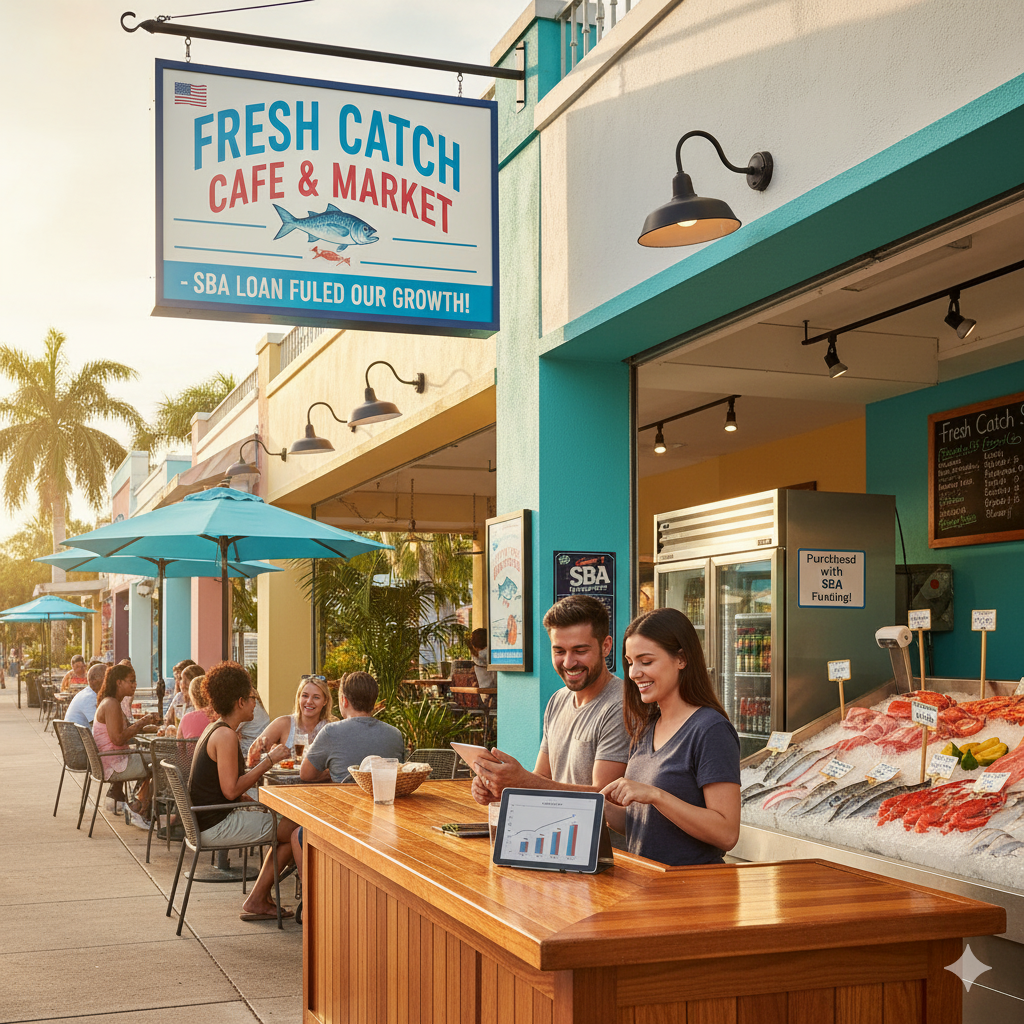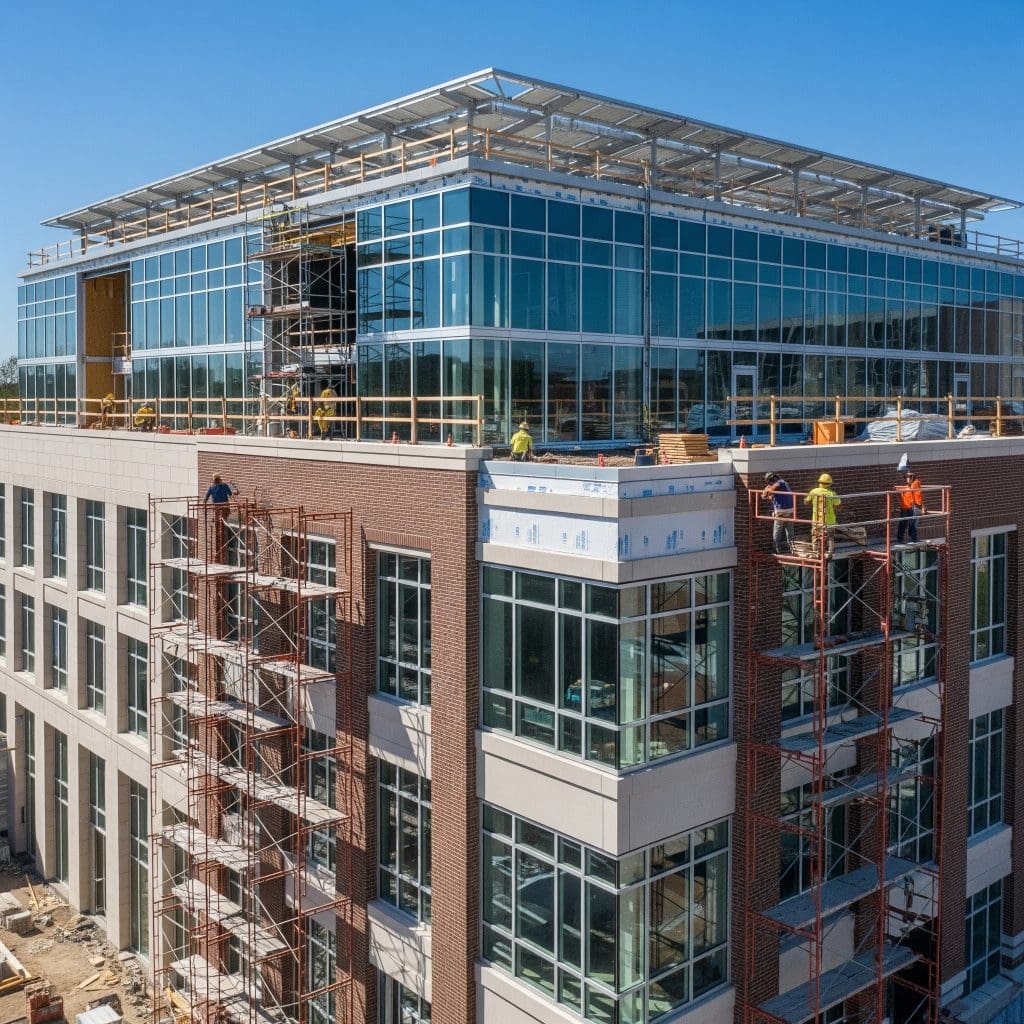The Best Way to Qualify for an SBA Loan as a Small Business Owner
Miami – October 29, 2025: If you’re a small business owner in Florida and you’ve ever thought, “What’s the best way to qualify for an SBA loan?”, you’re in the right place. This deep-dive guide shows you how to qualify for a loan from the Small Business Administration (SBA) and explains why doing so through the right partner—like GHC Funding—can make all the difference.
- The Best Way to Qualify for an SBA Loan as a Small Business Owner
- Why SBA Loans Are Often the Best Financing Option
- Current Market Insight: Rates + Factors (Florida Context)
- Requirements: What You Need to Qualify
- The Unique Benefits Over Traditional Financing
- Geo-Targeted Florida Focus: Real Business Examples
- Why Partnering with GHC Funding Matters
- Step-by-Step: Best Way to Qualify for an SBA Loan
- Q&A: Common Questions
- Final Thoughts
- Get an SBA loan in Florida.
- Why SBA Loans Are Often the Best Financing Option
- Current Market Insight: Rates + Factors (Florida Context)
- Requirements: What You Need to Qualify
- The Unique Benefits Over Traditional Financing
- Geo-Targeted Florida Focus: Real Business Examples
- Why Partnering with GHC Funding Matters
- Step-by-Step: Best Way to Qualify for an SBA Loan
- Q&A: Common Questions
- Final Thoughts
- Get an SBA loan in Florida.
Why SBA Loans Are Often the Best Financing Option
Many business owners are frustrated—traditional bank loans are too rigid, short-term loans carry extremely high rates, and business credit lines often mean unpredictable payments.
An SBA loan offers a unique proposition: long terms, competitive interest rates, lower down payments, and more flexibility in how you use the funds. When done right, it becomes the best way to qualify for an SBA loan as a small business owner—unlocking growth, expansion, equipment purchases, acquisition, and more.

Current Market Insight: Rates + Factors (Florida Context)
Here’s a realistic view of where SBA 7(a) and 504 loans stand in 2025, and what will influence your rate:
Need capital? GHC Funding offers flexible funding solutions to support your business growth or real estate projects. Discover fast, reliable financing options today!
⚡ Key Flexible Funding Options:
GHC Funding everages financing types that prioritize asset value and cash flow over lengthy financial history checks:
DSCR Rental Loan
- No tax returns required
- Qualify using rental income (DSCR-based)
- Fast closings ~3–4 weeks
SBA 7(a) Loan
- Lower down payments vs banks
- Long amortization improves cash flow
- Good if your business occupies 51%+
Bridge Loan
- Close quickly — move on opportunities
- Flexible underwriting
- Great for value-add or transitional assets
SBA 504 Loan
- Low fixed rates through CDC portion
- Great for construction, expansion, fixed assets
- Often lower down payment than bank loans
🌐 Learn More
For details on GHC Funding's specific products and to start an application, please visit our homepage:

- For a standard SBA 7(a) loan, rates currently range from approximately 10.50% to 15.50% depending on whether the rate is fixed or variable. (Bankrate)
- For loans above $250,000 (or large amounts), the spread over the base rate is smaller (for example: base + 3.0% for amounts over $350,000).
- Key influencing factors: your business credit score, time in business, annual revenue, owner personal credit, available collateral, business industry risk, and the lender’s risk appetite.
- For SBA 504 real-estate and major asset loans, fixed rate financing can range in the mid-6% to low-7% area (especially if structured as long-term fixed).
What this means for you in Florida:
Whether you’re in Miami (33130, 33131), Tampa (33607, 33612), Orlando (32801, 32803), or Jacksonville (32256, 32216) and you’re a service-based small business, a retail store, or a light manufacturing small business—if you show stable revenue, good credit, and collateral (or strong business assets), you can position yourself for the lower end of the rate range.
Test Your Florida Investment Prowess!

Florida, the Sunshine State, is a magnet for residents, tourists, and, increasingly, real estate investors. With its diverse markets, from bustling metropolises to serene coastal towns, understanding Florida's unique landscape is crucial for anyone looking to enter the investment property game, especially when exploring options like no income verification rental property loans for new investors.
How well do you know the state that offers unparalleled investment opportunities? Take our quiz and find out!
Requirements: What You Need to Qualify
To access the SBA loan programs effectively, you’ll want to line up these requirements in advance:
SBA 7(a) Loan Requirements
- Business must qualify as a “small business” under SBA size standards (typically fewer than 500 employees, certain revenue thresholds)
- Must be for-profit and operate in the U.S.
- Owners must have reasonable equity to invest; cannot simply rely entirely on the loan.
- Demonstrated cash flow to service the debt (i.e., your business must show that it can make the payments)
- Typically, time in business of at least 1-2 years preferred (although some newer businesses may qualify if other metrics are strong). (Small Business Administration)
- Creditworthiness: personal credit scores, business credit, and owner background matter.
- Collateral is required when available; the SBA does not always decline solely for lack of collateral, but lenders will prefer it. (Small Business Administration)
- Use of funds: expansion, working capital, equipment purchase, real estate, refinance certain existing debt (in some cases).
- Terms: Up to $5 million maximum loan size for 7(a). (Small Business Administration)
- Maturity: Up to 10 years for equipment/working capital; up to 25 years if real-estate is collateral.
SBA 504 Loan Requirements (for Major Fixed Assets)
- Best when buying owner-occupied commercial real estate, heavy equipment, or major facility upgrades
- Typically long-term fixed rate (10, 20 or 25 years)
- Typically lower down payment (often 10%) for eligible transactions
- Requires a Certified Development Company (CDC) partner and lender partnership
- Ideal for business owners who want to lock in long-term fixed payments and build equity
The Unique Benefits Over Traditional Financing
- Longer repayment terms → lower monthly payments = better cash flow.
- Lower down payments in many cases.
- Fixed or variable rates based on your needs, with caps defined by SBA guidelines.
- Flexibility of use (working capital, acquisition, equipment, real estate) rather than rigid purpose.
- Government guarantee means lenders are more willing to finance riskier small businesses that banks often avoid.
- Compared to short-term loans or high-interest lines of credit: you’re not trapped in high payment burdens or balloon payments; you gain predictability.
Are You an SBA Real Estate Loan Expert?

Test your in-depth knowledge on using SBA Loans for owner-occupied commercial Real Estate acquisition. These questions delve into the critical details that can impact your business's growth and financial strategy.
Geo-Targeted Florida Focus: Real Business Examples
Here are some real world small business owner scenarios in Florida:
- Miami–Dade County (33130, 33131, 33132): A service-based business (e.g., HVAC company) in downtown Miami wants to expand operations, purchase a shop and vehicle fleet. An SBA 7(a) loan through GHC Funding can offer the working capital plus equipment purchase, with amortization over 10 yrs—improving cash flow compared to a 5-yr bank term.
- Tampa Bay Area (33607, 33612): A retail business in Tampa’s Westshore district wants to remodel its storefront and purchase new inventory. Using an SBA 7(a) or 504 combination, you can lock in long-term fixed payments and not sacrifice cash flow by taking a short-term balloon loan.
- Orlando/Orange County (32803, 32812): A small manufacturer near Lake Nona wishes to acquire adjacent property and relocate equipment. An SBA 504 loan through GHC Funding (partnering a CDC) lets the business spread payments over 20-25 years, freeing capital for production growth.
- Jacksonville (32256, 32216): A franchise owner in Jacksonville wants to buy an existing location and expand to two units. The SBA 7(a) program allows acquisition financing along with equipment purchase, which outperforms typical bank terms that might require higher down payment or personal collateral.
Navigating SBA 7(a) Loans: An Essential Quiz for Small Business Owners

Test your knowledge on the SBA's most popular loan program, designed to fuel business growth and expansion - SBA 7(a) Loans!
Why Partnering with GHC Funding Matters
Choosing the right lender is critical when you’re trying to navigate the SBA process. Here’s why GHC Funding stands out:
- They specialize in SBA 7(a), SBA 504, and working-capital solutions tailored for small business owners—so you’re dealing with experts, not a generalist bank.
- They know the Florida market: from Miami to Tampa to Orlando to Jacksonville, they understand region-specific business dynamics and local economic drivers.
- Streamlined process: GHC Funding helps you assemble documentation, optimize your eligibility profile (credit, time-in-business, revenue) and position your business to qualify and close.
- They bring personalized guidance—unlike large banks that treat you as a number. You’ll receive direct access to underwriting, a clear roadmap of requirements, and transparency from day one.
- They cover the full suite: acquisition, refinance, equipment, working capital, expansion—so you can coordinate your strategy rather than piecing together multiple lenders.
👉 For the best way to qualify for an SBA loan as a small business owner, visit www.ghcfunding.com or call 833-572-4327 for your free consultation.
Mastering the SBA 504 Loan: Your Essential Guide Quiz

Test your knowledge on the SBA's most popular loan program, designed to fuel business growth and expansion.
Step-by-Step: Best Way to Qualify for an SBA Loan
- Assess your business fundamentals
- Time in business (aim for ≥ 12-24 months)
- Revenue history (stable or growing)
- Cash-flow that supports debt payments
- Personal & business credit scores
- Clean ownership structure
- Business location & industry (Florida business, U.S. operations)
- Determine your purpose and amount
- Working capital vs equipment vs real estate vs acquisition
- Target loan size and term (for better rate positioning)
- Choose the correct SBA product
- For general expansion/working capital → SBA 7(a)
- For major fixed asset/real estate → SBA 504
- For short-term “bridge” or interim financing (if needed) consider alternative working capital but then refinance into SBA long-term debt
- Prepare documentation early
- Business financials (profit & loss, balance sheet)
- Personal tax returns
- Business tax returns (if available)
- Business plan or use-of-funds memo
- Collateral list (if applicable)
- Ownership and management background
- Address any weak points
- Improve personal credit (“clean up” reports)
- Strengthen cash-flow (reduce debt, increase margin)
- Have at least partial collateral or a solid asset base
- Consider if you need a co-borrower or additional guarantor
- Work with a lender who understands SBA
- Engage early with a lender like GHC Funding
- Review the rate/term structure, maturity, amortization
- Ensure the lender will guide you through SBA guarantee and underwriting
- Close and execute
- Accept the term sheet
- Lock in the rate (if fixed)
- Deploy funds according to plan
- Stay in compliance with SBA requirements (owner guarantee, etc.)
Q&A: Common Questions
Q1. How long does the SBA loan process take?
A1. While timelines vary, standard SBA 7(a) loans typically take several weeks from application to funding once all documentation is submitted and the business has a solid profile. Working with a lender experienced in SBA (like GHC Funding) can reduce delays.
Q2. What can I use the funds for under an SBA 7(a) loan?
A2. You can use them for business expansion, equipment purchase, working capital, acquiring an existing business, refinancing qualifying debt, or real-estate purchase (in some cases). The SBA 7(a) is highly flexible. (Small Business Administration)
Q3. Do I need perfect credit to qualify?
A3. No, “perfect” is not required—but you do need a reasonable personal credit score, clean business credit history, and consistent cash-flow. Weak areas can be mitigated when other metrics are strong and you work with the right lender.
Q4. How much down payment is required?
A4. It depends on the deal, but for many SBA 7(a) deals the down payment is lower than traditional bank loans. For SBA 504, down payments may be 10% or so in appropriate transactions.
Q5. Are there prepayment penalties?
A5. Many SBA loans include no prepayment penalty or a modest one; terms vary by lender and structure. One of the key benefits is more flexibility compared to short-term, high-interest financing.
Q6. Can a small business in Florida use an SBA loan to purchase property?
A6. Yes—if the property is owner-occupied for the business or integral to operations, an SBA 504 or SBA 7(a) real-estate structure may apply. Working with a lender with Florida market expertise is critical.
Q7. What’s the best way to prepare before I apply?
A7. Get your business financials organized, personal credit checked, use-of-funds defined, and engage early with an SBA-experienced lender. The best way to qualify is to enter the process with transparency and a strong profile.
Final Thoughts
If you’re a Florida‐based small business owner (Miami, Tampa, Orlando, Jacksonville or anywhere across the state) and you’re looking to grow, acquire, expand, or invest in your business, understanding the best way to qualify for an SBA loan will save you time, money, and frustration.
By leveraging the right SBA product—be it a 7(a) or 504 loan—you sidestep the typical constraints of short-term financing or rigid bank loans. And by partnering with a proven expert like GHC Funding, you gain a strategic advantage: experience, structure, and speed.
Your next step: Visit www.ghcfunding.com or call 833-572-4327 to talk with an SBA financing expert. Together you’ll evaluate your business, map out your options, and start the pathway to funding—so you can focus on growth, not obstacles.
Get an SBA loan in Florida.
Get a No Obligation Quote Today.
Use these trusted resources to grow and manage your small business—then connect with GHC Funding
to explore financing options tailored to your needs.
GHC Funding helps entrepreneurs secure working capital, equipment financing, real estate loans,
and more—start your funding conversation today.
Helpful Small Business Resources

